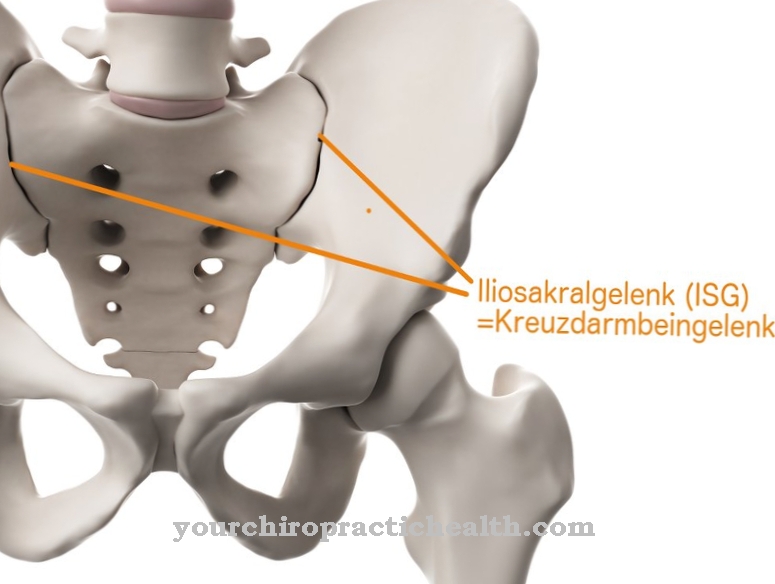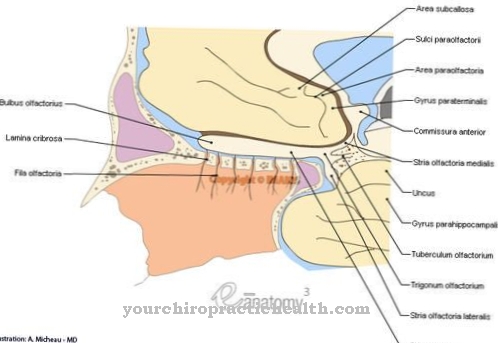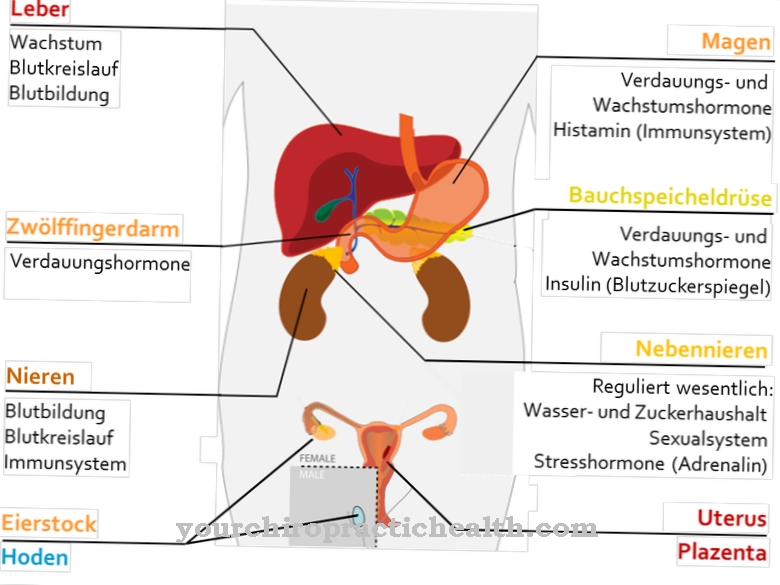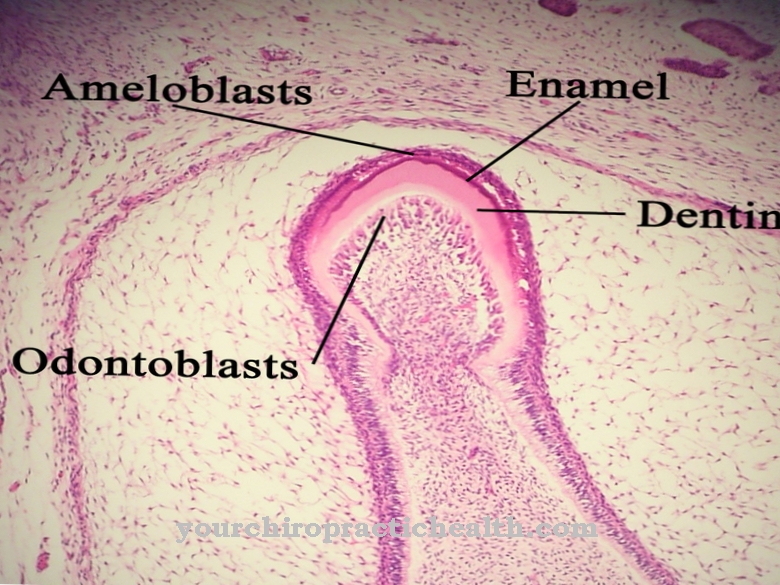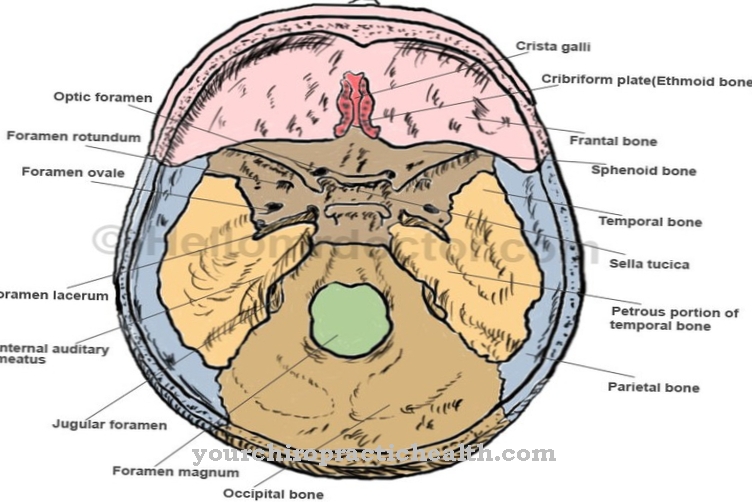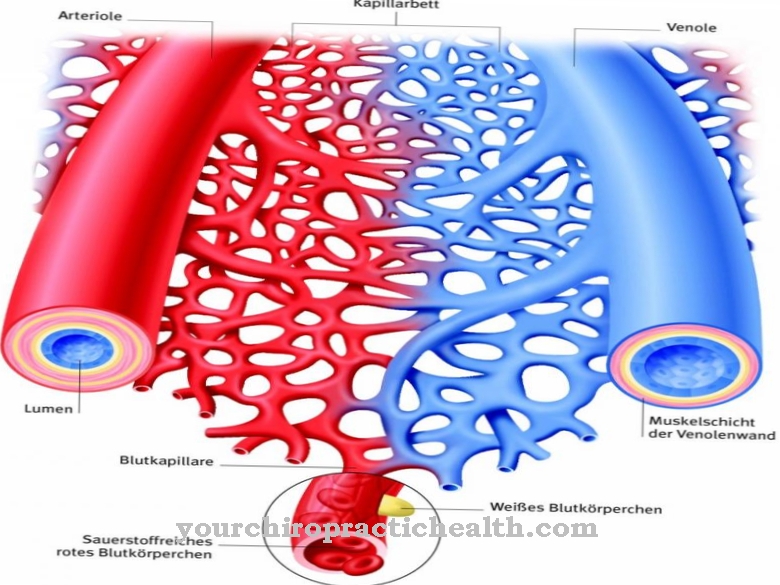The central nervous system (CNS) (also: Central nervous system) is primarily responsible for sending impulses and messages. Stimuli are received from the environment and passed on to the brain. The nerves give impulses so that the body, its muscles and organs can do their work.
What is the central nervous system?
The nervous system is defined as the entirety of nervous tissue. Purely anatomically and topographically, the nervous system can be divided into two parts. The peripheral nervous system (PNS) refers to all nerve cells and nerve tracts that are not used for central nervous system (CNS) belong.
The CNS consists of the important nervous structures in the brain and spinal cord. The CNS is protected in the brain by the skull bones, the spinal cord by the spine. The functions of the peripheral and central nervous system are closely interlinked.
Anatomy & structure
The central nervous system must control important functions of the body and is therefore particularly protected. The brain and spinal cord are each secured by three skins.
These skins enclose a fluid, the nerve water. The additional cushion protects the nervous tissue of the CNS from possible damage. The tissue of the CNS does not have a uniform structure. The tissue is roughly divided into two different types, the white and the gray matter. The gray matter of the brain is on the outside, while in the spinal cord it is on the inside.
It mainly consists of the cell bodies. The processes of the nerve cells lie in the white matter. These are the nerve tracts, so to speak, the lines that connect the nerve cells to one another.
Functions & tasks
The CNS is of vital importance to humans. This is where the central processing of the stimuli that come from the environment takes place. All sensations, perceptions and signals are coordinated, integrated and answered in this area.
This is where the center is located, which enables people to respond specifically and consciously to stimuli or demands from the environment. This region of the human nervous system is also where the voluntarily executed motor skills are located. Every consciously executed movement has its starting point here. The CNS is also responsible for thought processes, for both conscious and unconscious thinking.
More precisely, the CNS is in control of the entire coordination of the intricate details of posture and movement. The CNS is the seat of consciousness, language and thought. Memory and all of its services are also located in this area.
Last but not least, this is where the regulation and coordination of all the body's organ systems take place. Breathing, the blood circulation, all internal organs, muscles and sensory organs as well as the peripheral nervous system are controlled here. The CNS can be described as the control center of the human organism.
Diseases
As a result, disease of this system has far-reaching consequences. It will CNS damaged, in many cases the entire body is affected. The most common diseases of the CNS include epilepsy, Parkinson's disease, depression, dementia and Alzheimer's.
With around 40,000 new diseases every year, epilepsy is one of the most common neurological diseases. During an epileptic seizure, many nerve cells discharge too quickly one after the other and even simultaneously. This can lead to clouding of consciousness.
Parkinson's disease is characterized by uncontrollable tremors, slow movements, and stiffening of the muscles. Science has identified the inadequate supply of the brain with the messenger substance dopamine as the cause.
Everyone has depressive moods. But if such conditions persist over a longer period of time, then a serious illness can be assumed. Longer sadness for no real reason, lack of drive and energy characterize a depression that often ends in suicide. Depression is being diagnosed more and more often, as is Alzheimer's.
The dreaded disease is defined as organic in the brain. In this disease, nerve cells and the connections between the cells slowly die off. Researchers have found deposits of protein, the so-called plaques, in sick people, which are typical for Alzheimer's patients. The everyday competence of those affected decreases more and more. The serious effects of a damaged CNS make it clear how important the central nervous system is to humans.
Typical & common diseases
- epilepsy
- Alzheimer's, dementia, Parkinson's
- depressions

